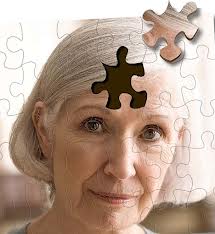By: Christie Hunter
 It is becoming a concern in many sectors that the population is aging as the baby boomers are one of the largest segments of the population. One of the parts of this is looking at cognitive ability and mental health in this demographic. Helping people in their later years to maintain both physical and mental health is a public health issue. Older people are prone to depression and dementia, and research is showing that there are steps that can be taken to help alleviate the symptoms of both of these. This article will highlight some of the research and what this research points to in regard to preventing cognitive decline.
It is becoming a concern in many sectors that the population is aging as the baby boomers are one of the largest segments of the population. One of the parts of this is looking at cognitive ability and mental health in this demographic. Helping people in their later years to maintain both physical and mental health is a public health issue. Older people are prone to depression and dementia, and research is showing that there are steps that can be taken to help alleviate the symptoms of both of these. This article will highlight some of the research and what this research points to in regard to preventing cognitive decline.
Zanjani, Kruger, and Murray (2012), discuss the organization Mental Healthiness Aging Initiatives. This organization promotes education, awareness and action in regard to mental health in elderly rural adults. They have found that mental health problems and drug use can be problems found in this population. In addition, 50% of this demographic may suffer from depression which has been found to decrease life expectancy by as many as 25 years. Because of these findings, it becomes prudent that focusing on these problems and the problems of aging in general would be well advised.
Research is beginning to also focus more on healthy aging as more of the population is getting older (Bryant, et al., 2012). Successful aging is defined with a number of components. These include a lack of disability, good general health and mental health, social function, and a lack of dementia. These authors see attitudes toward aging as being an important factor in these components. Negative attitudes toward aging can lead to depression. On the other hand, positive and optimistic attitudes to aging meant better life satisfaction and better physical health. Health care professionals can increase more positive outlooks on aging by educating patients about activities that can help keep mind and body young.
In the same vein, Carlson, el al. (2012) discusses activities and memory. Some of the listed activities for better cognitive functioning include reading books, doing crosswords, and taking classes that are often offered through local colleges. Seniors should also think about volunteer activity, joining into activities at community centers that are geared toward the aging population, and other social connections. The authors state that more than frequency, intensity, and duration of an activity that the most important component is to engage in a diverse routine of many of these activities for more positive cognitive outcomes. They suggest that activities like this may be even more important for women than for men, given their longer life expectancies and increased likelihood of decline in cognitive functions. The authors note that one barrier to this can be that women are more likely to be caretakers which can impede their abilities to find the time to devote to developing healthy brain routines.
From a physical and brain functioning aspect, Deslandes, et al. (2009), suggest that exercise is also an important undertaking in aging. Exercise has been shown to be correlated with better brain function. It should be noted that any type of physical activity is preferable to no activity at all. There are specific approaches to helping people become more active. In addition, water exercises are usually a good alternative for those with arthritis and joint pain and programs specifically for seniors are often found at the local YMCA. Short walks, stretches, even owning a pet can increase physical activity in seniors.
Cook (2007) suggests that any and all of these approaches are a good idea for all ages of people. Routines are easier to adhere to when they have been in place for a longer period of time. Starting at a younger age can benefit the mental health of most age groups. According to Cook (2007) exercises that improve logic, processing, memory, and intellectual development should be the aim. Games focusing on analytical thinking are a good place to start. These include word games like Scrabble, chess and checkers, and even the children’s game Memory. Many times a google search can lead to online computer games and software available to develop these skills.
Aging is an inevitable part of the life cycle. Learning to navigate it can be challenging. Health care professionals should be advised to do what they can to encourage some of the activities outlined above. It is much easier to prevent physical and mental health problems than it is to treat them once they have taken over. The population is aging due to the baby boomers and this fact should not be ignored. Many of these people have lived long successful lives, and helping them to maintain a good quality of life should be a priority.
References:
Bryant, C., Bei, B., Gilson, K., Komiti, A., Jackson, H., & Judd, F. (2012). The relationship between attitudes to aging and physical and mental health in older adults. International Psychogeriatrics, 24(10), 1674-83.
Carlson, M. C., Parisi, J. M., Xia, J., Xue, Q., Rebok, G. W., Bandeen-Roche, K., & Fried, L. P. (2012). Lifestyle activities and memory: Variety may be the spice of life. The women's health and aging study II. Journal of the International Neuropsychological Society: JINS, 18(2), 286-94.
Cook, Linda J. (2007). Exercises for mental wellness: Couldn't we all benefit? Journal of Psychosocial Nursing & Mental Health Services, 45(5), 8-9.
Deslandes, A., Moraes, H., Ferreira, C., Veiga, H., Silveira, H., Mouta, R., Laks, J. (2009). Exercise and mental health: Many reasons to move. Neuropsychobiology, 59(4), 191-8.
Zanjani, F., Kruger, T., & Murray, D. (2012). Evaluation of the mental healthiness aging initiative: Community program to promote awareness about mental health and aging issues. Community Mental Health Journal, 48(2), 193-201.

 New research shows that women with Alzheimer’s disease show worse mental deterioration than men, even when at the same stage of the the disease.
New research shows that women with Alzheimer’s disease show worse mental deterioration than men, even when at the same stage of the the disease.